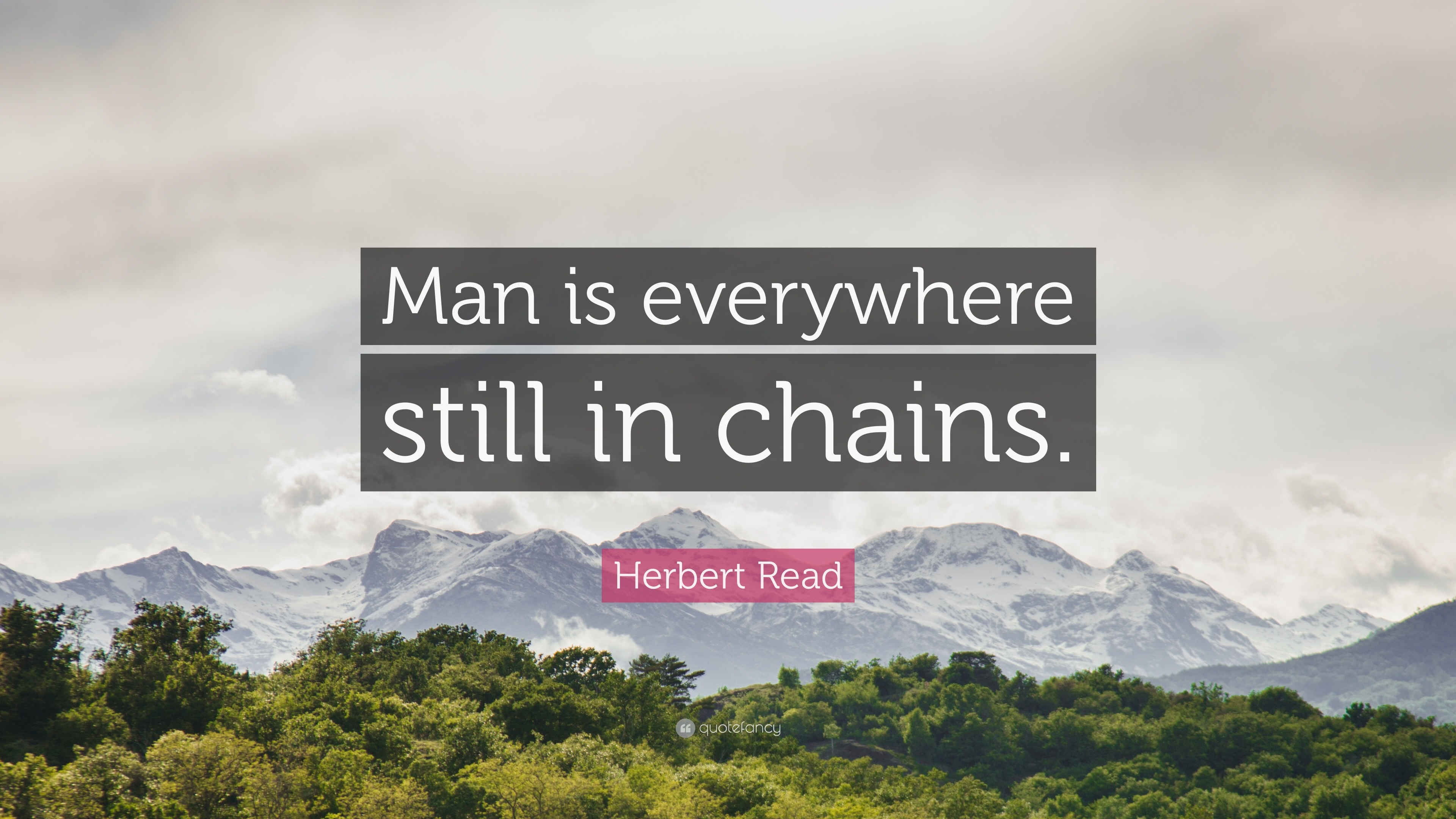
Herbert Read Quote “Man is everywhere still in chains.”
Man is born free; and everywhere he is in chains of property. Property therefore gave rise to a society where each was at war with the other, a war masked by the pretense of 'civility'. So often seen as the natural state of man, for Rousseau this war of all against all was a corruption of natural man, a corruption inevitably brought about.
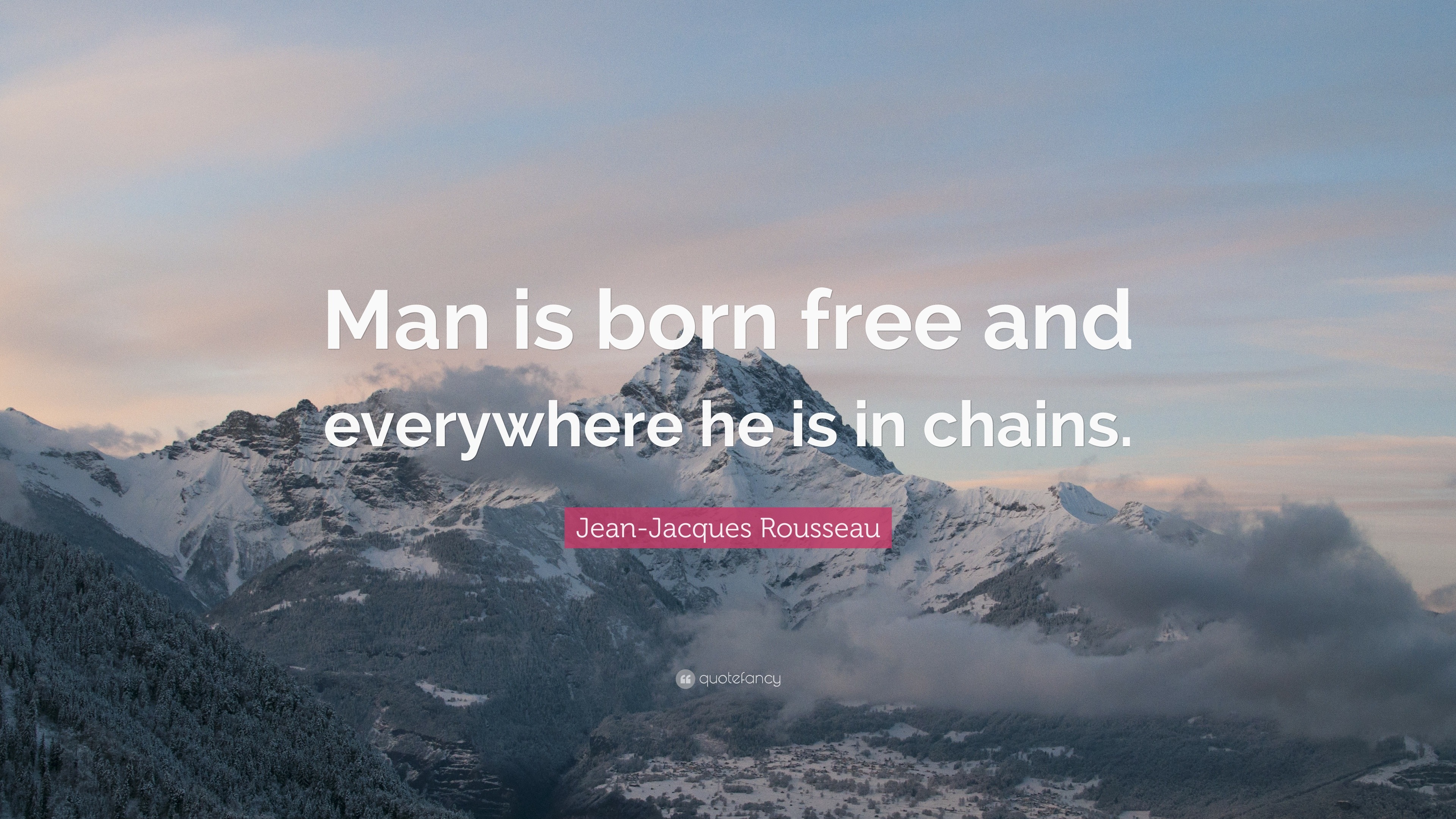
JeanJacques Rousseau Quote “Man is born free and everywhere he is in chains.”
Story, June 28, 2012 "Man is born free but everywhere is in chains." This quote made the Geneva-born political philosopher, Jean-Jacques Rousseau, world famous. Rousseau was born to a family of French Protestant refugees on June 28, 1712. Geneva, which offered shelter to thousands of persecuted Huguenots from the 16th […]
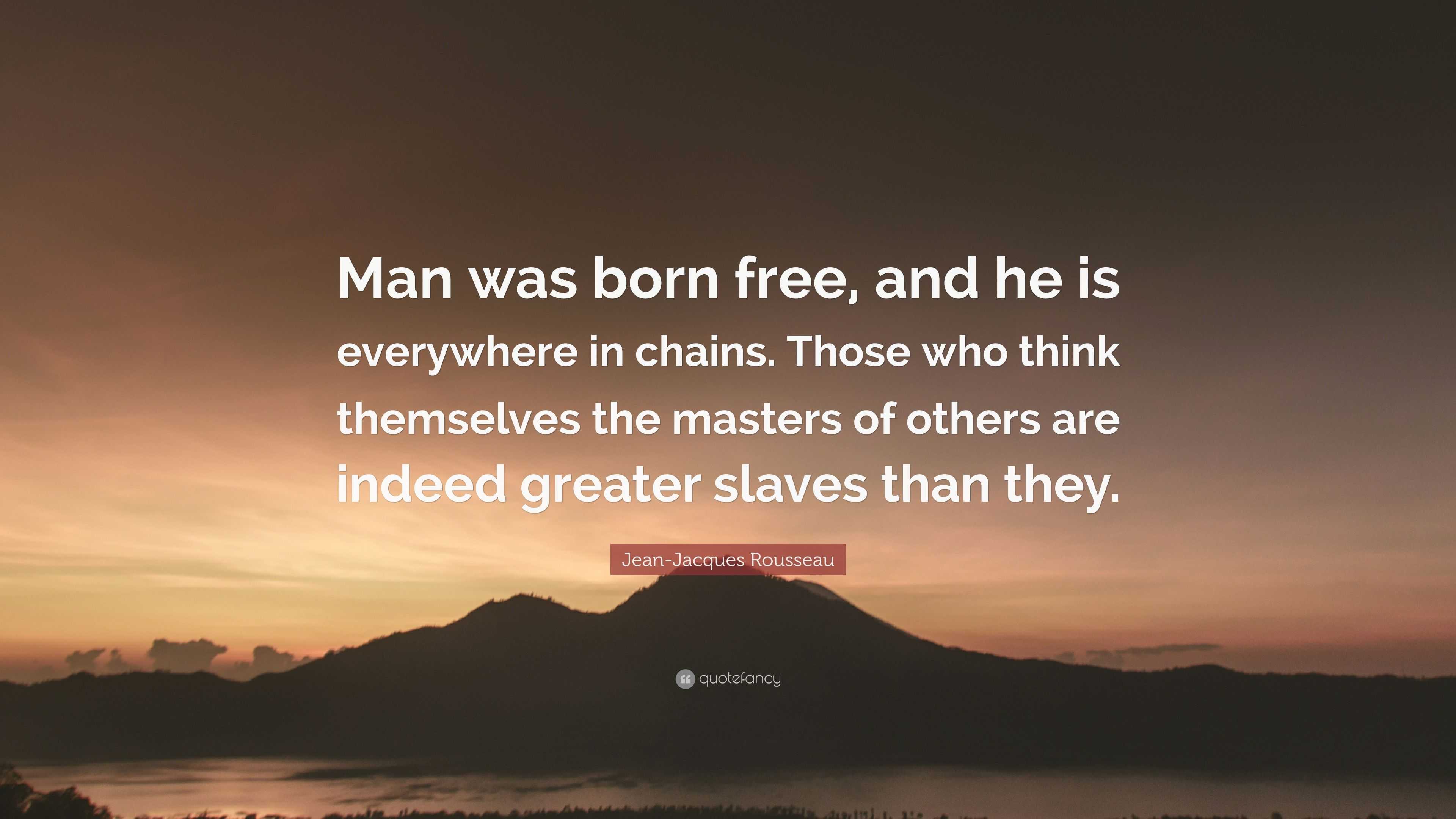
JeanJacques Rousseau Quote “Man was born free, and he is everywhere in chains. Those who think
"Man is born free, and everywhere he is in chains. One man thinks himself the master of others, but remains more of a slave than they are." Jean-Jacques Rousseau, in his dramatic opening lines to his immensely powerful treatise "The Social Contract," wrote that man was naturally good but becomes corrupted by the pernicious influence of human society and institutions.
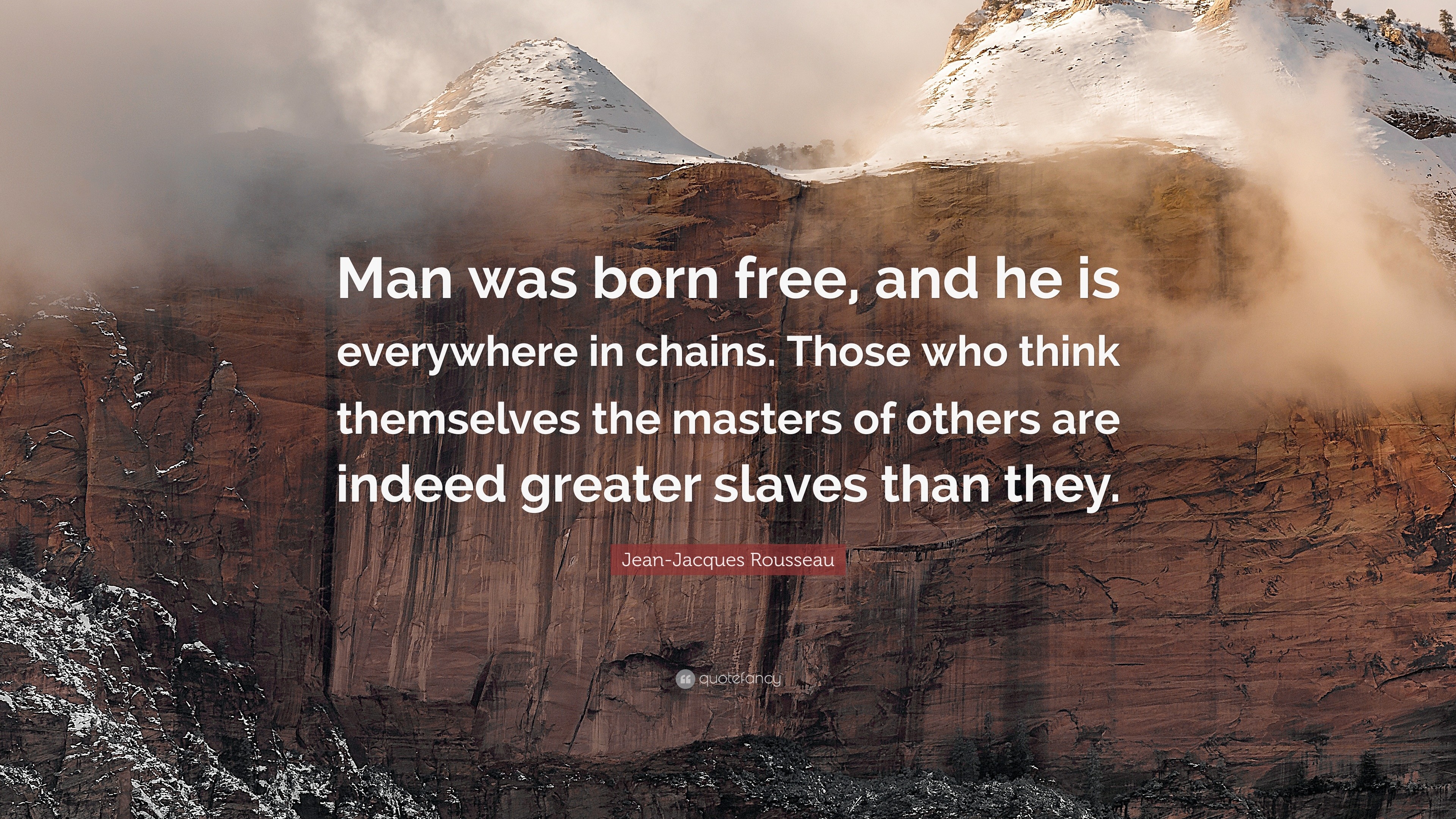
JeanJacques Rousseau Quote “Man was born free, and he is everywhere in chains. Those who think
If I took into account only force, and the effects derived from it, I should say: "As long as a people is compelled to obey, and obeys, it does well; as soon as it can shake off the yoke, and shakes it off, it does still better; for, regaining its liberty by the same right as took it away, either it is justified in resuming it, or there was no.
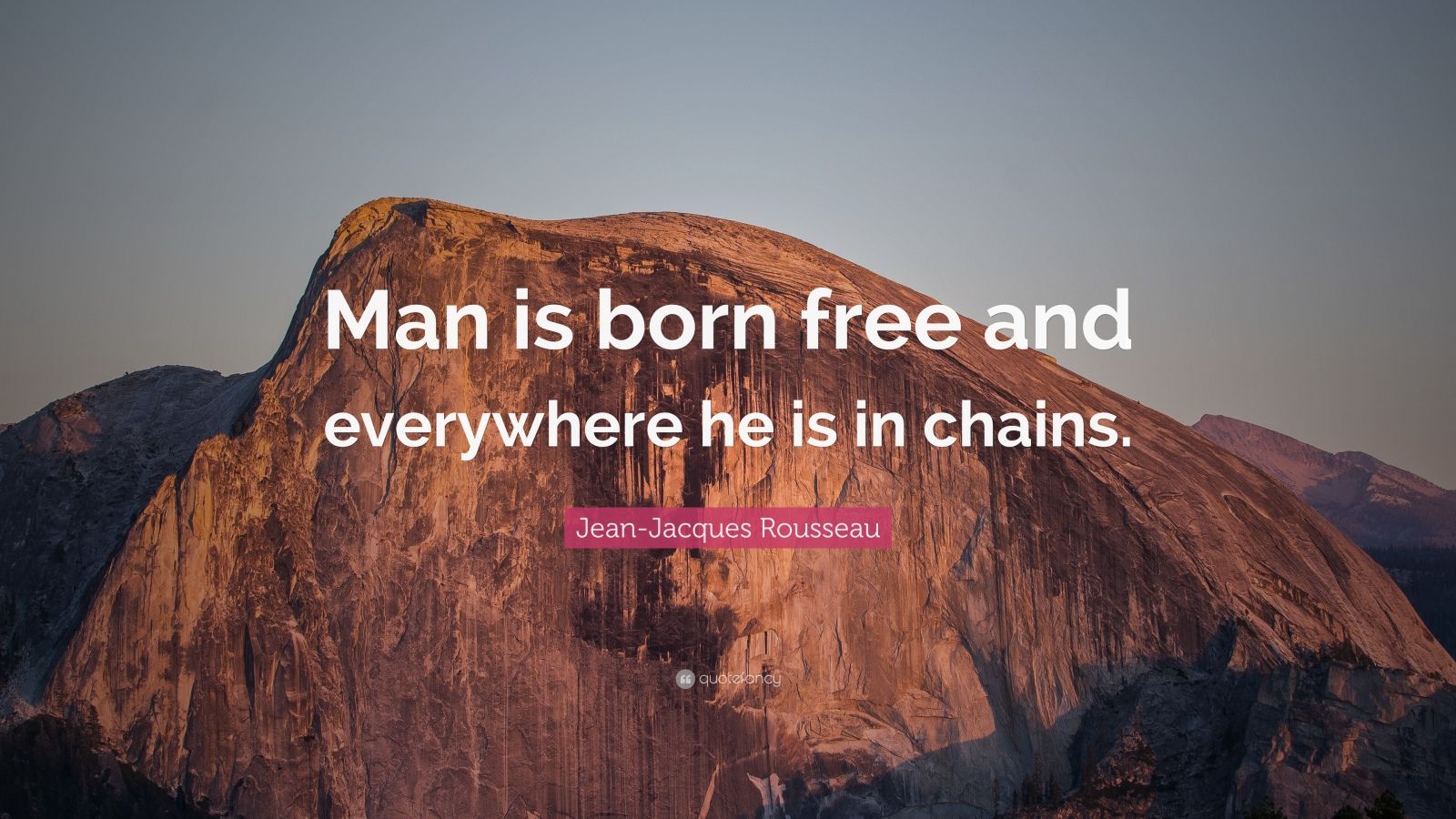
JeanJacques Rousseau Quote “Man is born free and everywhere he is in chains.” (12 wallpapers
NICOLA-ANN HARDWICK, MAR 1 2011. 'Rousseau is both one of the greatest advocates and most profound critics of the social contract tradition'. Discuss. "Man was born free, and everywhere he is in chains" (Rousseau, 20072: 28). This conspicuous paradox between liberty and human oppression is reflected in Rousseau's entire politico-moral.

Man is born free and everywhere he is in chains. IdleHearts
Approved by eNotes Editorial. What Rousseau is saying in this quote is that people deserve to be free but that they are chained by the societies in which they live. What he is trying to do in this.
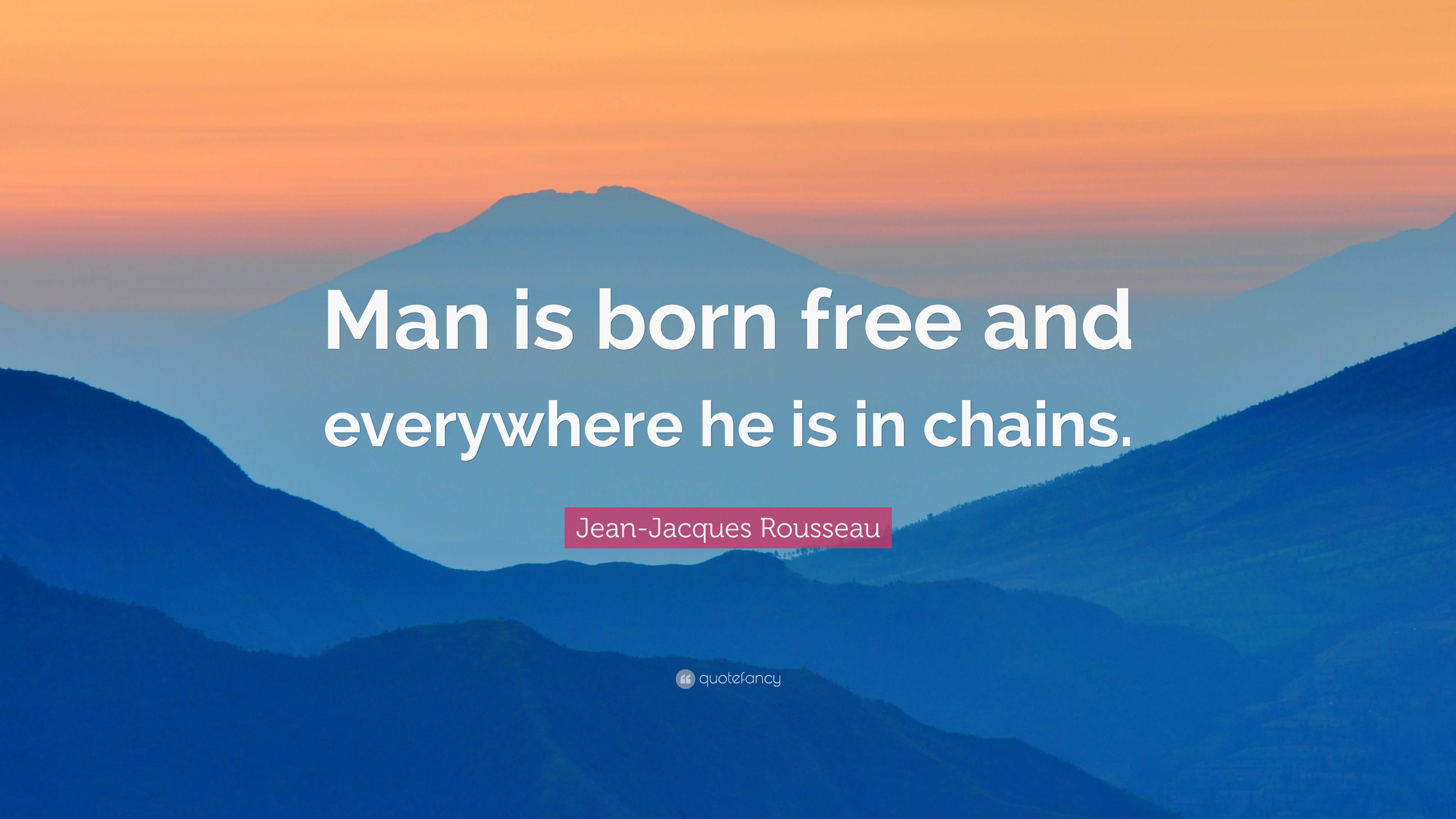
JeanJacques Rousseau Quote “Man is born free and everywhere he is in chains.”
It is possibly the most influential work of political philosophy in the West. The treatise begins with the often-heard opening lines, "Man is born free, but everywhere he is in chains. Those who think themselves the masters of others are indeed greater slaves than they." When the French Philosopher Jean Jacques Rousseau used these dramatic.
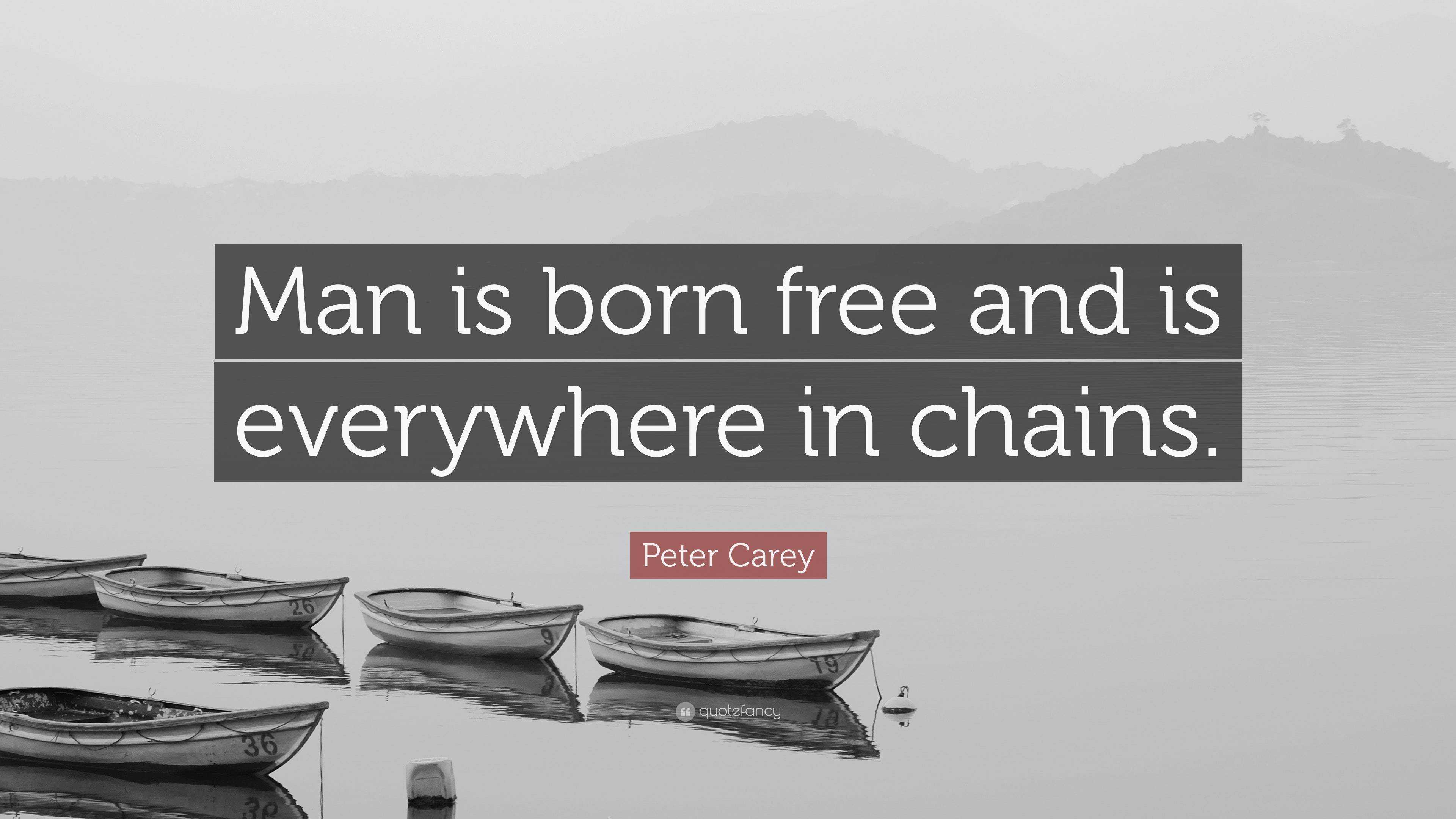
Peter Carey Quote “Man is born free and is everywhere in chains.”
Jean-Jacques Rousseau. Man is born free; and everywhere he is in chains. Jean-Jacques Rousseau ( June 28, 1712 - July 2, 1778) was a major French-speaking Genevan philosopher of Enlightenment whose political ideas influenced the French Revolution, the development of socialist theory, and the growth of nationalism. See also:
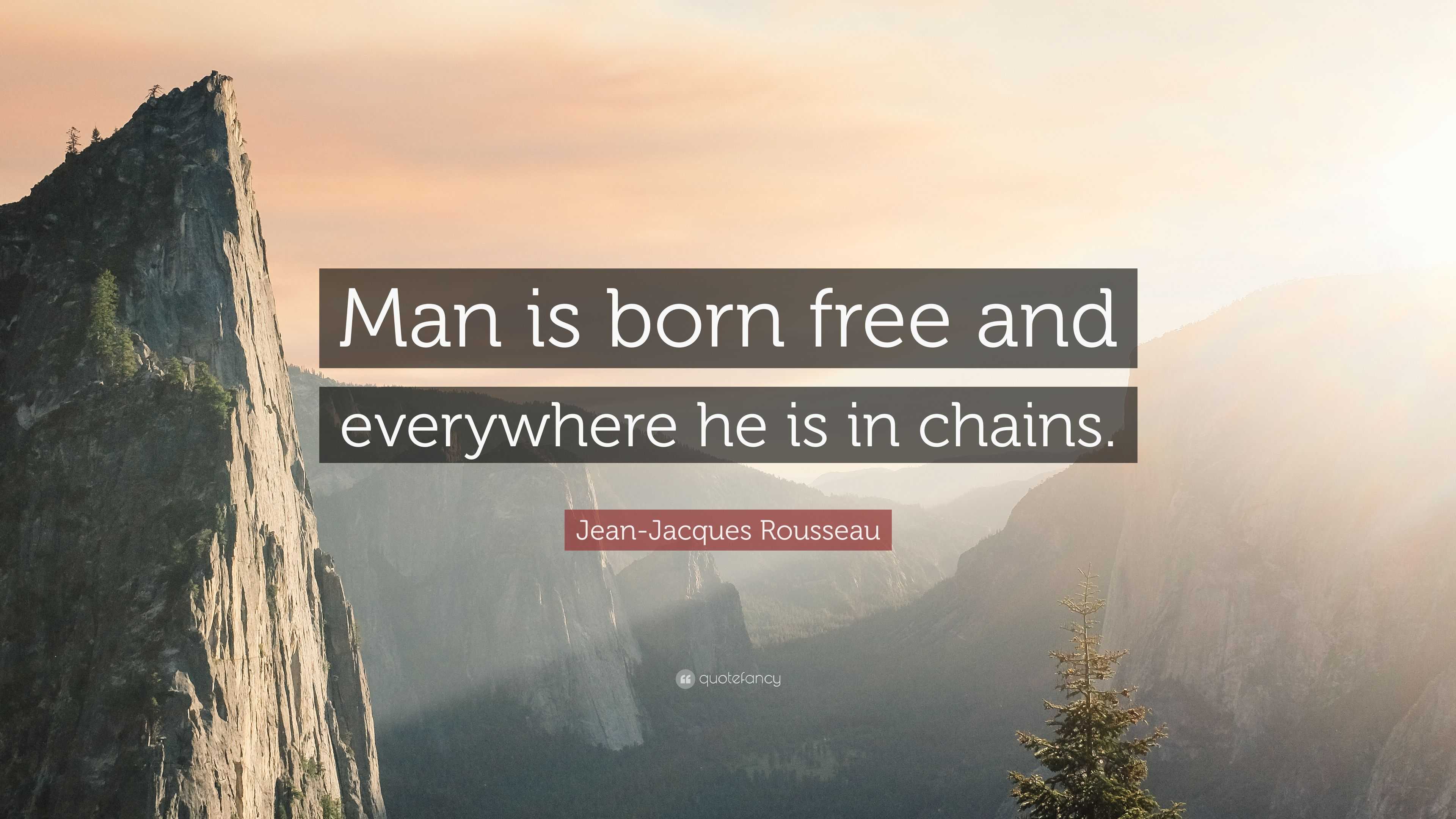
JeanJacques Rousseau Quote “Man is born free and everywhere he is in chains.”
Answer. Rousseau considered freedom as a collective venture, and as freeing oneself from selfish motives towards a larger good for the entire group. His conception of liberty liberates human beings from the hierarchical and unjust inequality of society. Rousseau views this inequality as the constraint in the realization of liberty.
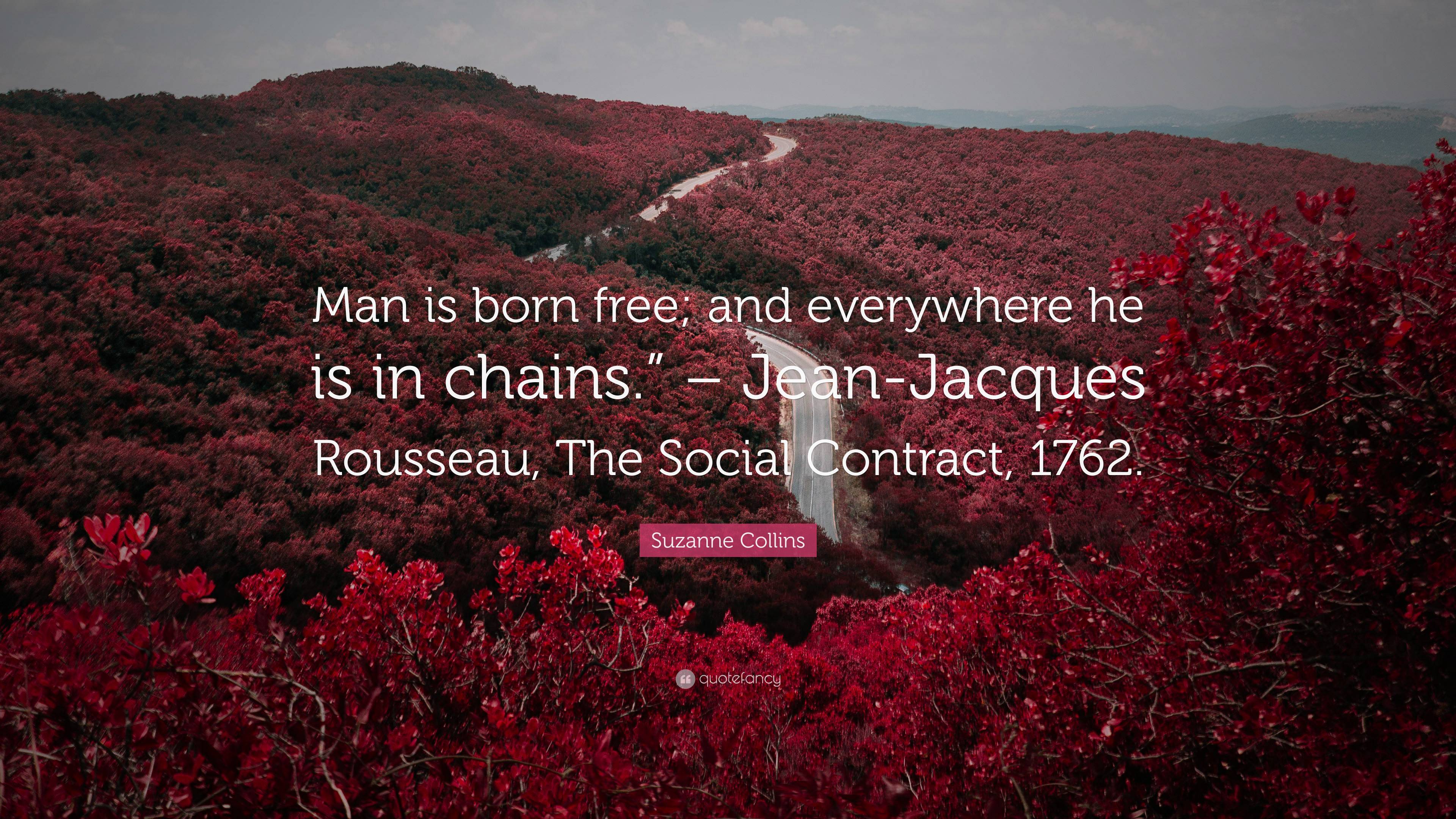
Suzanne Collins Quote “Man is born free; and everywhere he is in chains.” JeanJacques
The profound quote, "Man is born free, but everywhere he is in chains," by Jean-Jacques Rousseau encapsulates the paradox that defines human existence. At its core, this statement underscores.
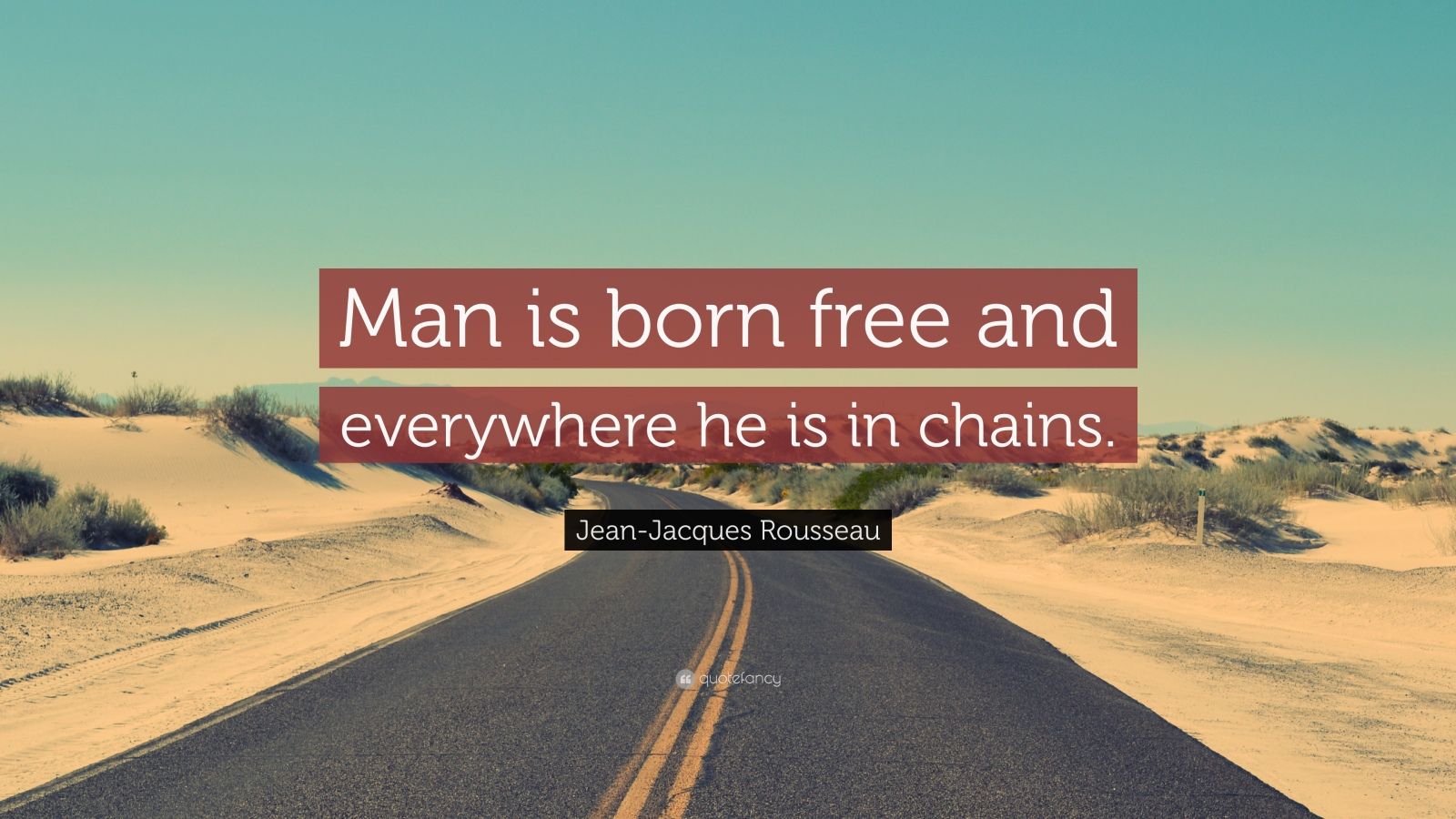
JeanJacques Rousseau Quote “Man is born free and everywhere he is in chains.” (12 wallpapers
Man is born free; and everywhere he is in chains. One thinks himself the master of others, and still remains a greater slave than they. Variant translations: Man is born free, and everywhere he is in shackles. Man was born free, but is everywhere in bondage. I, Ch. 1.
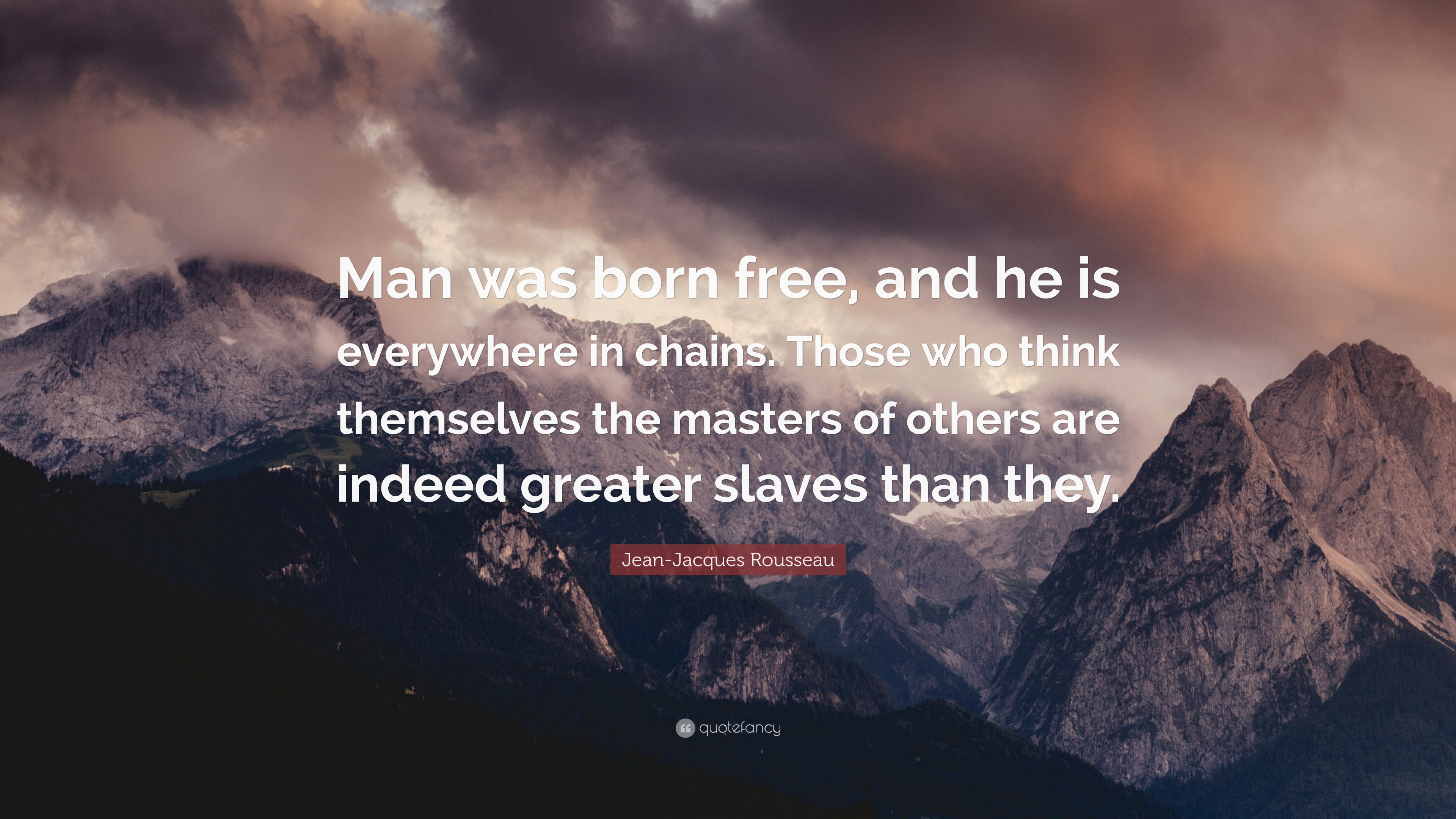
JeanJacques Rousseau Quote “Man was born free, and he is everywhere in chains. Those who think
Rousseau was a man of the people and his social and political theory was written from the bottom up and not the top down. In his works the Confessions Rousseau tells us what it is like to rise from the bottom in a highly stratified society dominated by an ancient regime society.

JeanJacques Rousseau Quote “Man is born free and everywhere he is in chains.”
Jean-Jacques Rousseau 1712-78French philosopher and novelist. The social contract. title of book, Du contrat social (1762) Man was born free, and everywhere he is in chains. Du Contrat social (1762) ch. 1. The English people believes itself to be free; it is gravely mistaken; it is free only during the election of Members of Parliament; as.
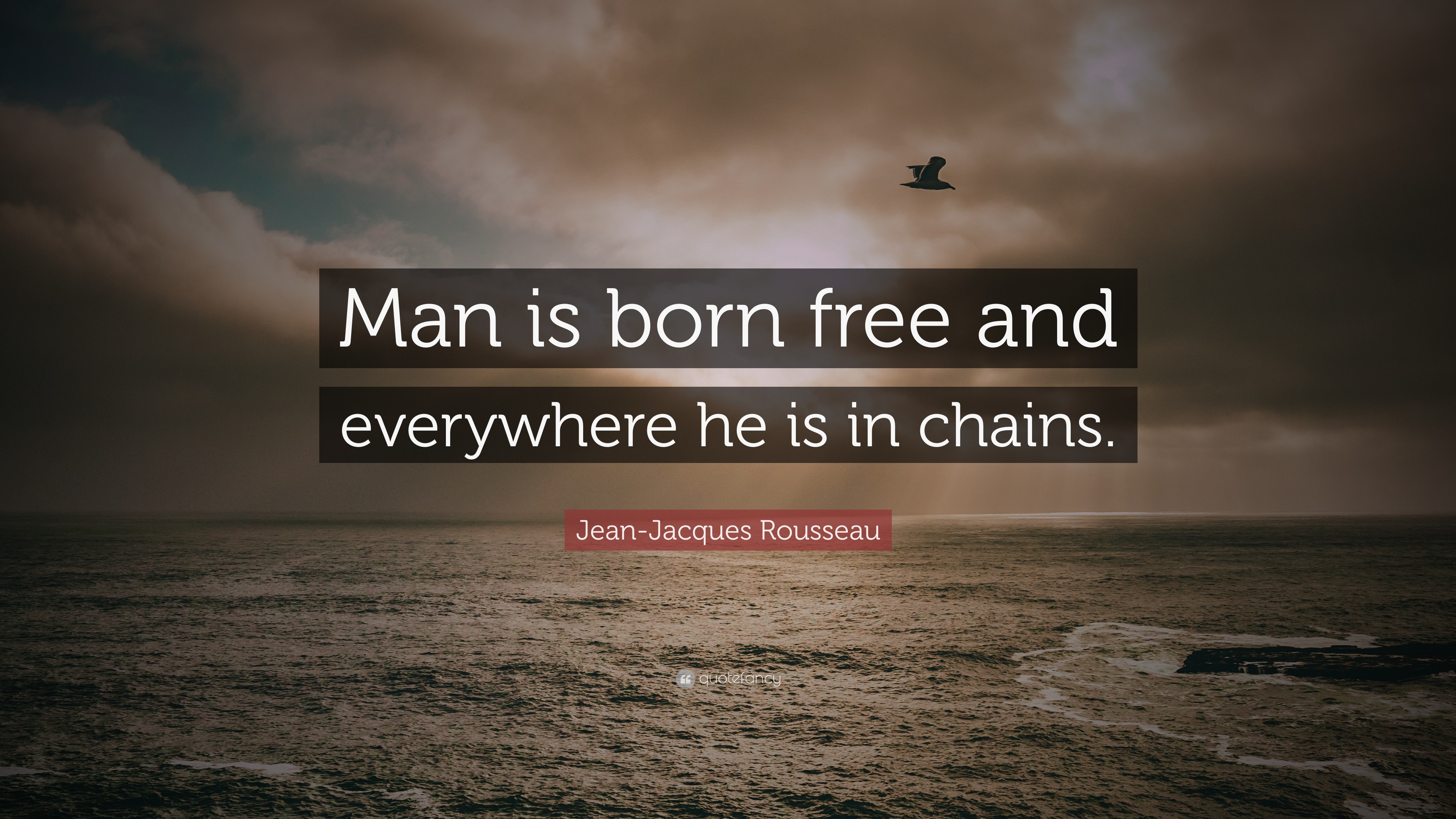
JeanJacques Rousseau Quote “Man is born free and everywhere he is in chains.”
For the thinker who actually said 'man is born free, and everywhere he is in chains' was a figure of the eighteenth-century Enlightenment.Jean-Jacques Rousseau (1712-78) was a Genevan philosopher, writer, and composer: a man of many talents who wrote novels such as Julie and Emile, which dramatised his theories of education, as well as a work regarded as the first modern autobiography.
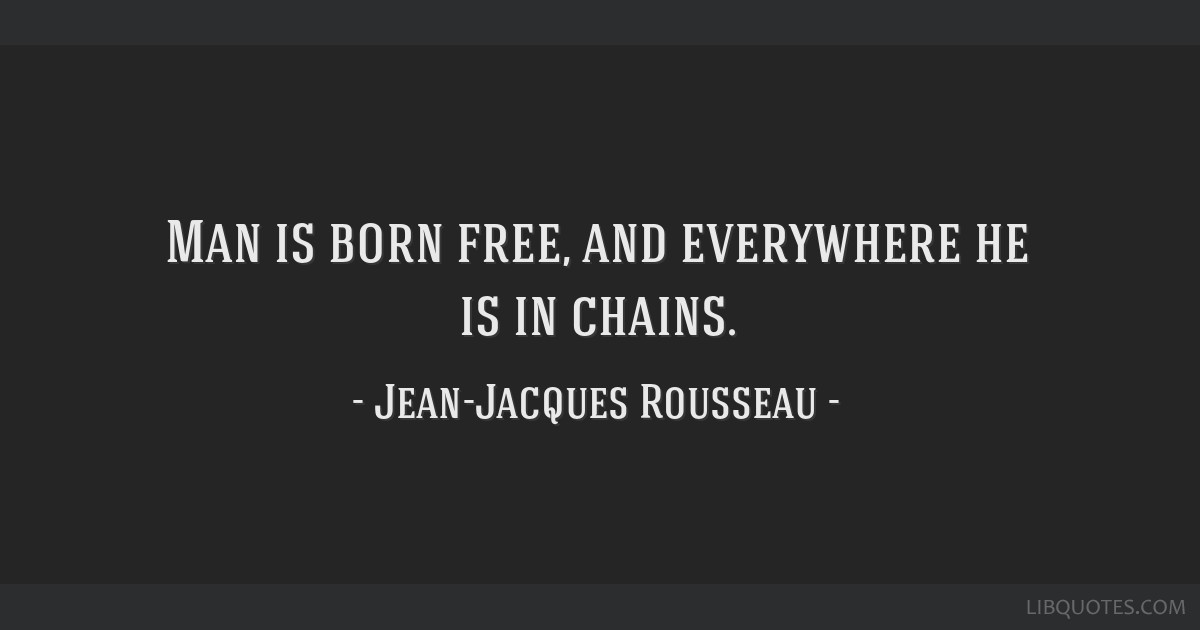
Man is born free, and everywhere he is in chains.
Jean Jean-Jaques Rousseau (1712 - 1778) Jean-Jacques Rousseau was born on June 28, 1712. The writer, philosopher, composer, and pioneer of the Age of Enlightenment had a great influence in educational and political matters throughout the French Revolution and beyond. "It is ordinary people who have to be educated, and their education alone.
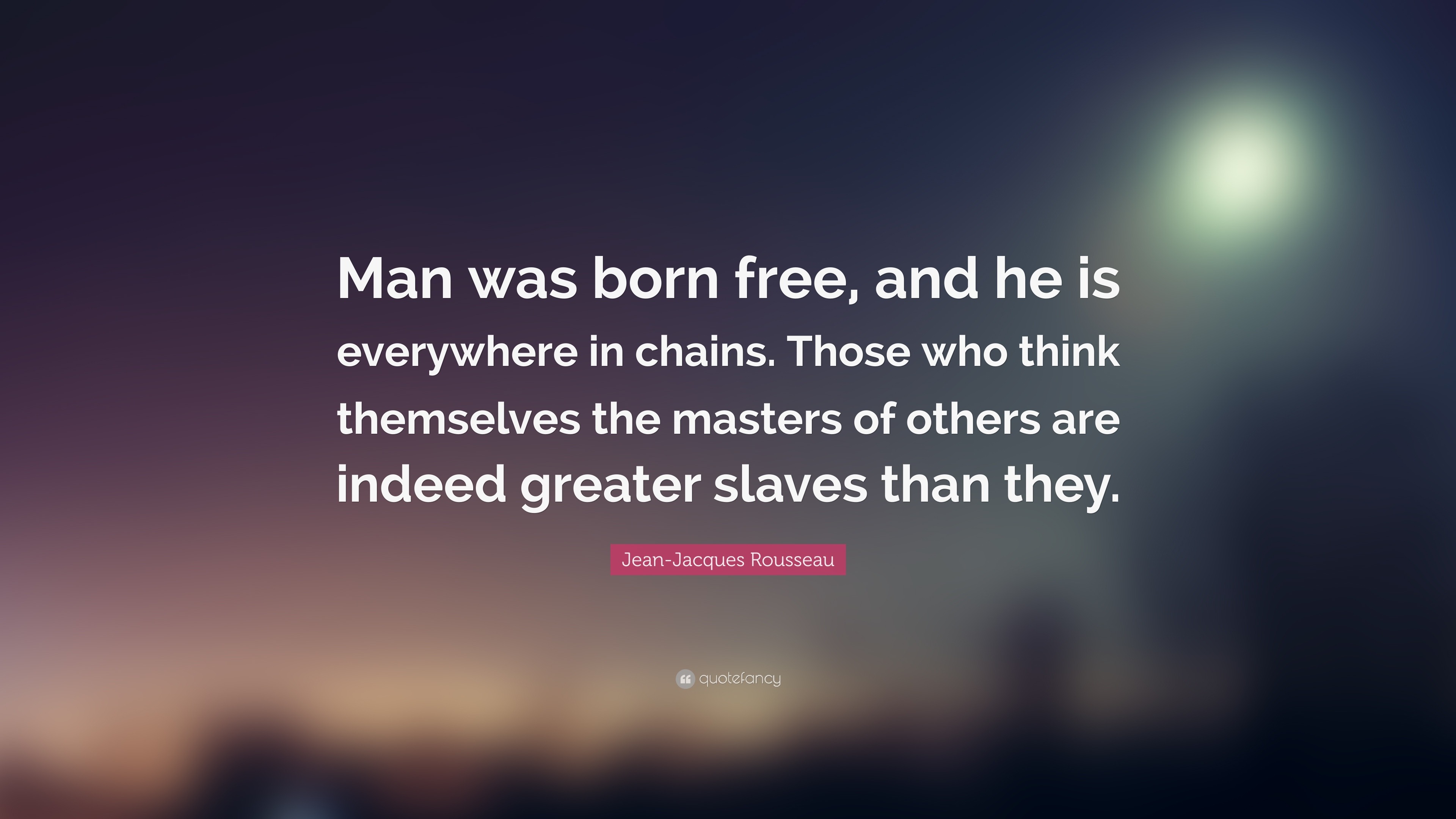
🎉 Man is born free but everywhere in chains. What does this statement Man is born free and is
Jean-Jacques Rousseau was one of the most influential thinkers during the Enlightenment in eighteenth century Europe. His first major philosophical work, A Discourse on the Sciences and Arts, was the winning response to an essay contest conducted by the Academy of Dijon in 1750. In this work, Rousseau argues that the progression of the sciences.